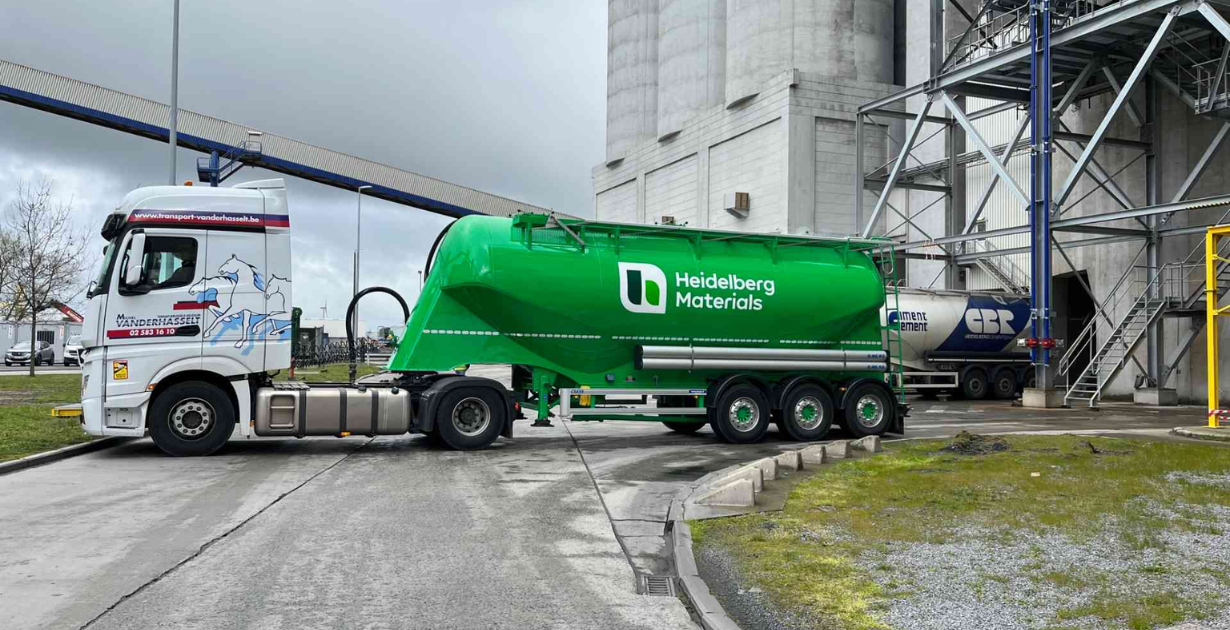Heidelberg Materials Surpasses First Quarter Expectations with Strong African Performance
After months of navigating market uncertainties, Heidelberg Materials reported a strong first quarter, with its African operations playing a critical role in enhancing overall performance.
The company’s current operations increased by 1.3%, resulting in a total of €235 million, which surpassed the anticipated €207 million.
Despite the company’s enduring difficulties in North America, which included disruptions, the company’s performance in Africa was impressive.
Heidelberg has achieved much-needed stability by emphasizing the expansion of its African market, which has mitigated losses in other regions.
Analysts have observed that Heidelberg’s strategic investments in Africa are beginning to yield results.
In order to satisfy the increasing demand in critical markets such as Kenya and Nigeria, the organization has been expanding its cement production capabilities.
The CEO underscored that Heidelberg’s resilience and capacity to adjust to changing market dynamics are demonstrated by its Q1 performance.
“We are dedicated to further expanding our presence in Africa, as it remains an essential component of our global strategy,” he declared.
The company is still cautious about potential risks, such as inflationary pressures and fluctuating exchange rates, despite the positive results.
Heidelberg has already implemented cost-control measures to address these challenges in the upcoming months.
The company has also encountered substantial obstacles due to supply chain issues, which have resulted in equipment delivery delays.
Nevertheless, Heidelberg intends to expedite its African initiatives in order to capitalize on the anticipated infrastructure development.
Heidelberg’s objective is to enhance its market position in Africa by investing in more sustainable production methods in the future.
The company intends to introduce a new line of environmentally favorable cement products by the fourth quarter of 2025, with an emphasis on environmentally conscious construction enterprises.
In the midst of economic optimism, South African stocks are attracting renewed foreign investment.
Foreign investors have rekindled their interest in South Africa’s equity market following a period of market instability, resulting in a resurgence.
This increase is attributed by analysts to the more favorable investment climate and recent economic reforms.
A potential turning point for the country’s financial markets was indicated by the Johannesburg Stock Exchange (JSE) recording its longest sequence of foreign inflows in over two years.
Mining, retail, and technology sectors continue to attract investors due to their robust growth prospects.
According to experts, the government’s initiatives to stabilize the economy are the primary cause of the enhanced market sentiment.
Investors have been reassured by significant reforms in regulatory frameworks and fiscal policy, which has resulted in a rise in capital inflows.
Some economists warn that risks persist, particularly in light of ongoing global economic uncertainties, despite the optimistic outlook. Sustained investment growth may encounter obstacles due to inflation and exchange rate volatility.
The South African Reserve Bank has responded by announcing that it will closely monitor financial markets in order to prevent any potential disruptions.
Additionally, policymakers are investigating supplementary strategies to attract long-term foreign investment, with a particular emphasis on the technology and infrastructure sectors.
The renewed investor interest has already had a positive impact on local businesses, as numerous companies have reported increased access to capital.
Particularly those engaged in export-oriented industries, small and medium-sized enterprises (SMEs) are anticipated to be significant beneficiaries.
Analysts anticipate that the investment trend will persist in the future, provided that the government maintains its present economic trajectory.
Investor confidence will be maintained through the implementation of effective policies and a stable political environment.
news via inbox
Get the latest updates delivered straight to your inbox. Subscribe now!




